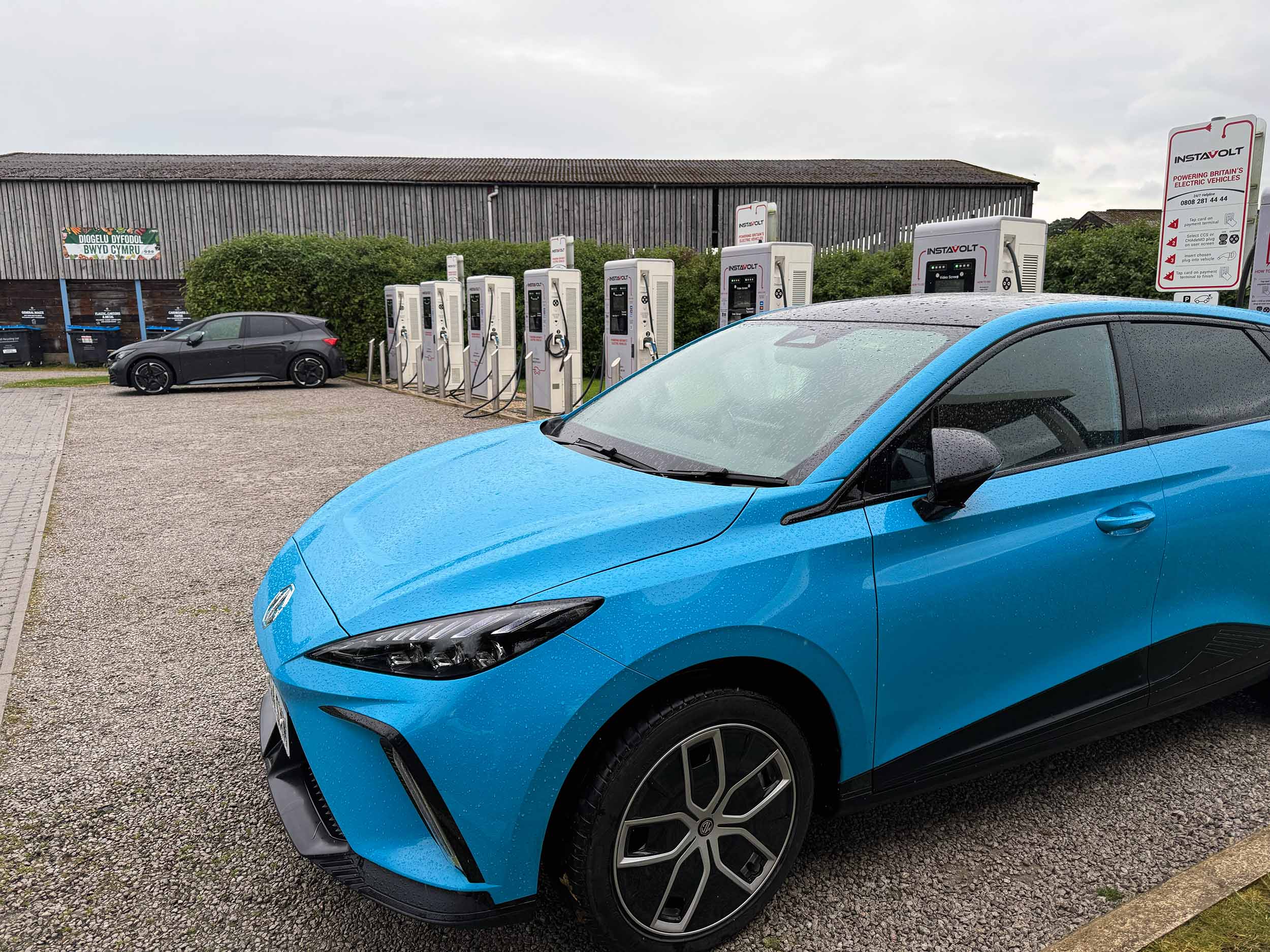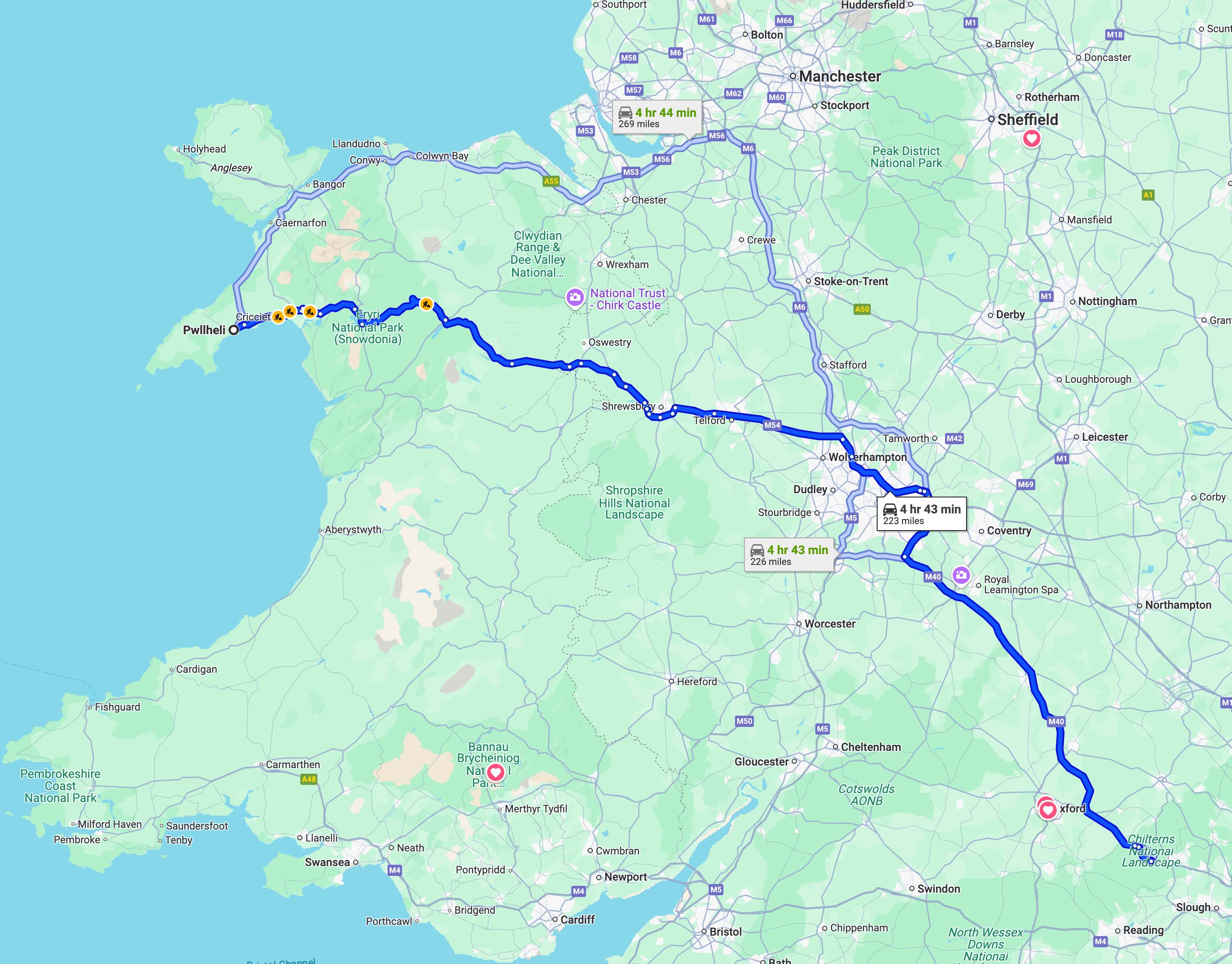Range anxiety is a thing
EV's seem to ignite lots of debate, and it's common to see people adopt one of two positions:
EV's are a terrible idea: Expensive cars, terrible public charging, batteries fail after a few years, they're as bad for the environment as ICE vehicles, you can't drive long distances.
EV's are brilliant: It's the future! range anxiety is just something the media are selling you, trust me, get one and you'll see just how amazing it all is!
I've been driving EV's ever since I joined Crowd Charge in 2020. I started off with a temporary loan of a Nissan Leaf, then moved onto the VW ID.3, before the Kia E-Niro and now the MG 4. If I had to pick a number from 1-10 (1 being terrible, 10 being brilliant) I'd say my own attitude is somewhere around the 7 mark. I'm aiming for the following to be a balanced view.
The good bits
Firstly, EV's are just incredibly nice to drive. Silent beyond the faint whir of the motor when you put your foot down, when I go back to driving a manual car it feels slightly like operating some steampunk contraption.
Charging at home is so convenient if you're able to have a charger on your house. When I got my very first EV I didn't have a home charger, and had to drive to public chargers which was both inconvenient and expensive. I'd go far as to say the lack of home charger would be a deal breaker for me - I still appreciate the fact I can plug in when I go to bed, and wake up with a full charge. Even with the current energy prices, it's cheaper than filling up the tank of my old diesel car.
In terms of public charging, there's both good and bad. I did a long trip from Buckinghamshire to North Wales last year, and stopped at the Rhug Estate on the way back, and those guys have really nailed it. A big bank of fast chargers that were empty when I got there, and a large farm shop with hot sandwiches and drinks while you waited.
 glorious charging at Rhug Estate
glorious charging at Rhug Estate
The environmental argument against EV's is a funny one, I've seen people on both sides of this argument tie themselves in knots arguing for and against incorporating supply chain carbon emissions into the emissions of the vehicle. I have no idea how this stacks up, but the other argument I hear frequently is the increased weight of EV's means they increase emissions via tyre wear. This seems like clutching at straws to me, but even so, a quick glance at the unladen weight of my old Ford Kuga (1,707kg) compared to my MG.4 (1,710kg) would suggest this is less of an issue than people are trying to make out.
The bad bits
My biggest issue with EV's currently is definitely public charging and range anxiety. Whilst Rhug Estate was easily the nicest place I've charged, that same trip on the outbound leg also provided me with the opposite experience. For context, this was the outbound journey:
 223 miles
223 miles
The WLTP range on my car is 323 miles. They may as well not bother producing these figures because I've never gotten close to this figure in any configuration of weather and driving style.
I knew I'd have to charge once on the way there, and chose to do so around Telford, as there was limited charging infrastructure close to my route once I hit North Wales. I got very lucky at my service station stop, and happened to arrive just as someone was leaving a space in the fully utilised charger bay (there were only 3 chargers). 5 minutes earlier or later and I'd have been in for a long wait.
My main issue was that this charge would get me to my destination, but leave me awfully tight on getting to a public charger on the way back (especially if any further driving was required during my stay). The result was that I stopped at a council car park close to my destination and sat on a slow charger for a couple of hours in order to bank some energy for the return trip. These chargers weren't as slick as the fast ones you find in motorway service stations, indeed the unit I used had a message written on it using permanent marker stating the installers had mixed up the port names, so make sure you use "Port B" in the app if you're plugged in to "Port A". It still took 3 or 4 goes to get my car to start charging.
In the grand scheme of things these are not big issues, but it's infinitely more work to plan these journeys compared to the zero planning I'd do in an ICE car.
The other thing worth mentioning with fast charging is the fact you will rarely get anywhere close to the published charging speeds of either your vehicle or the charger. This is mainly due to the vehicle backing off from the maximum power it can consume in order to protect the battery. They say a picture is worth a thousand words, so this chart for my MG 4 illustrates this.
 vehicle charging data from evkx.net
vehicle charging data from evkx.net
Rhug Estate's chargers are 120kW at maximum. The grey series is the theoretical maximum of the car, and the blue series is the maximum deliverable by the charger. If we plug in at a low percentage, we can see the car will take as much as it can, but by 55% the car starts to manage the battery and backs off power delivery. By 80% charge we're suddenly charging at 50kW, by 90% we're around 20kW. The lesson here is that you're just not meant to charge to 100% on these sorts of chargers (indeed it breaks the unofficial EV driver morality code) but this could be surprising or frustrating if you're doing an extremely long journey where you really do want full charge.
The other point worth mentioning here is cold weather really does affect the performance of the battery. In winter the car's computed range drops by almost 100 miles. For the short journeys I do, this just means charging more, but again long journeys this does need to be factored in.
Final Thoughts
All in all, I love my EV. It's convenient for me because I charge at home and drive primarily locally. There's still huge amounts of work to be done in terms of charging infrastructure before it can be adopted by a significant portion of the country, however.